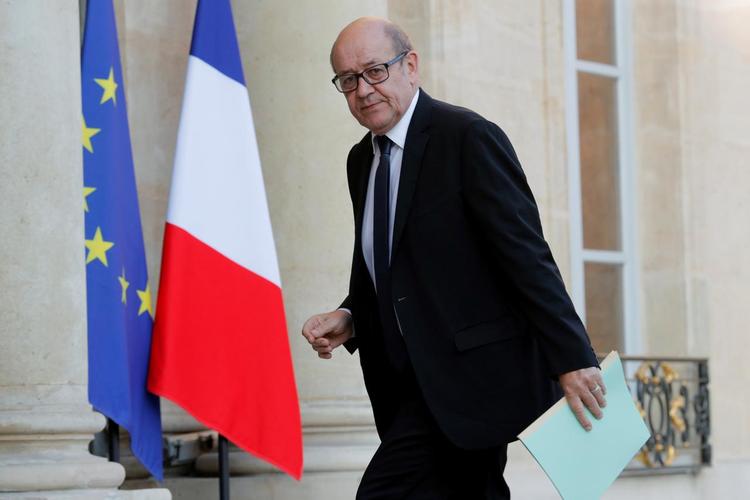Speaking to the website of the Strategic Council on Foreign Relations, Dr. Mahmoud Dehghan cited French Foreign Minister Jean-Yves le Drian’s claim that Iran’s handling of the recent unrests had prevented the settlement of the JCPOA related problems, said: “Under the current situation and considering that Britain is faced with Brexit related problems, France feels that as the only EU veto holder should use this privilege to play a leadership role.
He added: “Paris has no other advantage to show off in the European Union. For example, if France wants to show off in the economic domain concerning domestic capabilities, Germany has far better economic status, political focus and better organization than France. The European Central Bank is under the control of Germany as Europe’s number one power. Therefore, since France cannot be Europe’s first economic power, it is using its political alternative, that is, its veto power and its stance on the turmoil in Iran is politically motivated and very biased.
In analyzing European actions that have opted for threats rather than action, the university professor emphasized that Europe was unwilling or unable to fulfil its obligations vis-à-vis the JCPOA. He added: This was obvious from the beginning because Europe is not a unified complex and a single country; it has 27 members with 27 different opinions in which American and British attitudes are extremely strong.
He added: In addition to their internal conflicts, powers outside Europe are also influential in their policies. In my opinion, perhaps from the very beginning, we were overwhelmed by the eleven commitments the EU made.
On the statement made by Federica Mogherini, the EU High Representative for Foreign Affairs and Security Policy that “the protests in Iran were due to economic problems the people are faced with and at the same time Europe’s non-compliance with the JCPOA and lifting of the sanctions, Dehghan said: It should be noted that Ms Mogherini is a coordinator and not even a Foreign Minister in Europe Union! Because there is no government to have a foreign minister and one cannot count much on Ms Mogherini’s words because decision making is done by EU members.
He added: France is excusing itself for failing to fulfil its obligations and once again raises issues outside its JCPOA commitments such as Iran’s missile capabilities or its status in the region and now it raises the issue of internal unrest that is unacceptable.
Commenting on the consequences of European sophistication about the JCPOA and its impact on Iran-EU relations, Dehghan stated that the EU wanted to safeguard the JCPOA but did not want to make a commitment but wanted Iran to fulfil its obligations and be deprived of its nuclear rights and Europe would not face problems in terms of security and the influx of immigrants.
He added: “They see no interest in trying to support the JCPOA up to the end at the expense of defending Iran and confronting America. They see cooperation with the United States in terms of trade, military, and security longer than cooperation with Iran. They also appreciate its economic and political benefits more. If you look at the volume of European trade with the US, the volume of total European exchanges with Iran is not comparable.
He continued: “The US Secretary of State is working very hard so that Iran would be unable to sell and purchase arms and would not enjoy the benefits projected in the JCPOA. I think we have to put political pressure but not move so far as to lead to a breach of the nuclear agreement because then the UN resolutions would be restored which would be to our disadvantage. We are now using the benefits of the JCPOA. Indeed, this advantage is not 100 per cent, but many issues, including the designation of Iran as a threat to international security, should not come back.










0 Comments